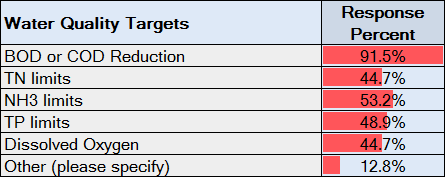Challenges that Keep Wastewater Operators Up at Night
What keeps operators up at night? What operational issues are they most concerned about, and how do they find solutions to operational problems? These questions and their answers are key to enhancing operational efficiency in the water and wastewater industry..
We asked the top wastewater operators in the United States a set of simple, but profound questions on three themes:
- What regulator imposed water quality goals their facilities have to meet.
- The biggest operational issues they have to deal with.
- How they make decisions when faced with operational challenges.
Their answers were revealing. By far the most interesting result and insight we obtained was that operators make decisions mainly by troubleshooting. This flies in the face of industry practice - where consulting engineers spend countless hours preparing operational and process manuals that the operators typically don't use. To meet its pressing challenges, the water industry must adapt its process support tools in ways that make sense to how operators truly learn and act.
1. Operators Must Meet Multiple Water Quality Targets:

Figure 1: Regulated water quality standards at wastewater facilities
Wastewater facilities are faced with a broad range of regulator imposed limits, ranging from reducing organic loading (BOD and COD) to reducing nutrient limits (Nitrogen, Phosphorus) and ensuring that discharged effluents meet basic dissolved oxygen requirements (DO).
2. Storm Water, Temperature and Industrial Dischargers Complicate Operator's Lives

Figure 2: Operational issues that keep operators up at night
Operators are faced with many challenges that come from forces that they have no control over. In addition to worrying that their aeration systems, blowers, pumps, pipelines and decanters are functioning, operators must also deal with climate and weather related issues (rain, temperature, storm water). They must also worry about what is contained in the wastewater that the industrial dischargers in their sewage catchment area are doing. By a mile, storm water and rain events were the biggest worry for the operators, followed by cold temperature concerns.
3. Operators Don't Read Manuals --- They Troubleshoot

Figure 3: How operators make decisions
How do operators deal with operational problems? Do they read the process manuals that consulting engineers provide to them? Do they go to their supervisors and ask for guidance and direction? Do they discuss with their peers? Or do they roll their sleeves up and try to figure things out by troubleshooting? Operators are doers. About 55% of the operators indicated that their first instinct would be to troubleshoot the problem.


